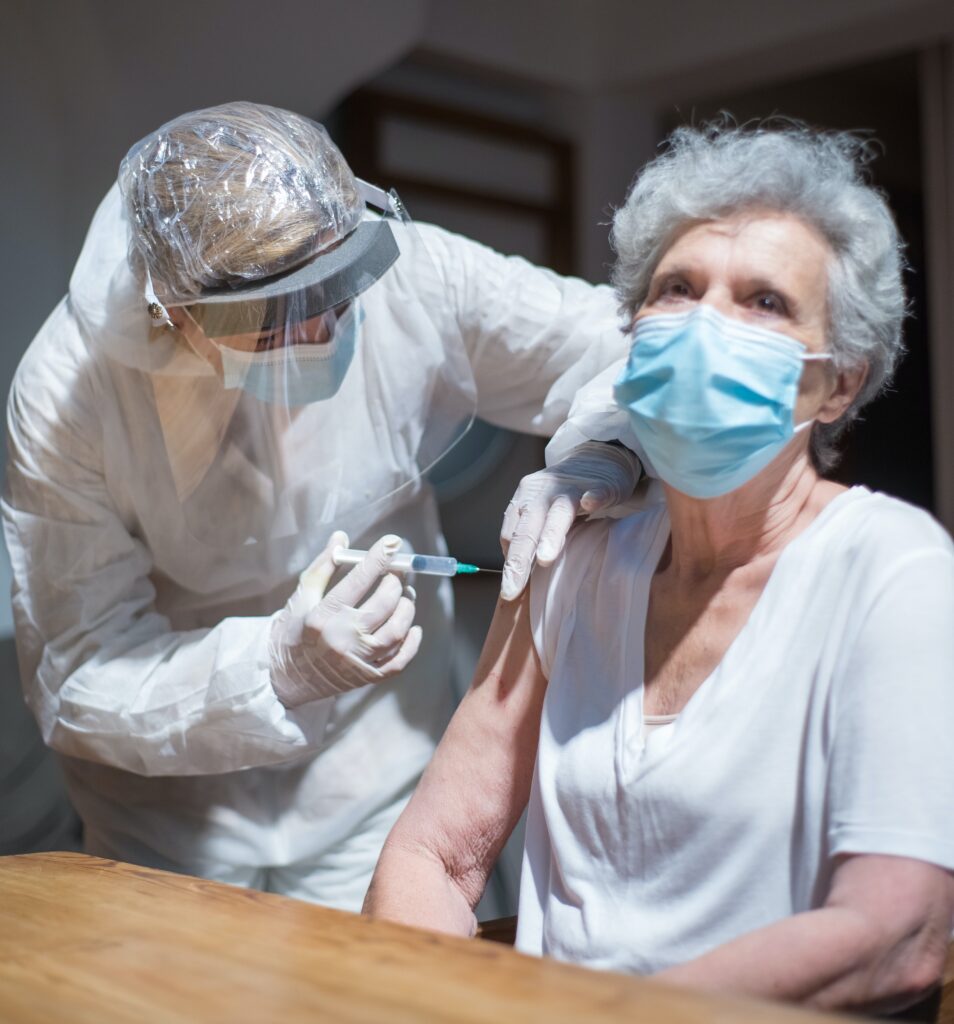The Inflation Reduction Act, passed August 7, 2022, will hit biotech innovation hard by enacting drug price controls on around 100 drugs over the next decade, making it less attractive to invest in R&D and ultimately leading to fewer treatments and a loss of employment and investments.
But there are some silver linings—especially with regards to vaccine availability under Medicare and Medicaid.
Two bills included in the Inflation Reduction Act, the Protecting Seniors Through Immunization Act and the Helping Adults Protect Immunity (HAPI) Act, have long been supported by the Biotechnology Innovation Organization (BIO) and partners including the Adult Vaccine Access Coalition (AVAC) and Vaccinate Your Family. While the legislation’s long-term impacts on R&D and new cures will be severe, these provisions are nonetheless a win for patients’ access to existing vaccines.
The Helping Adults Protect Immunity (HAPI) Act
According to Senator Sherrod Brown’s (D-OH) office, “The [HAPI] legislation will ensure all adults on Medicaid can access vaccines recommended by the Advisory Committee on Immunization Practices (ACIP) at no out-of-pocket cost.” The bill “would create parity in vaccine coverage between traditional Medicaid and Medicaid expansion programs. The bill would also provide enhanced federal matching funds for states to better reach at-risk and vulnerable patient populations.”
Healthcare access for low-income people and families has been an issue that legislators have worked to address for decades in the US. Meanwhile, with the expansion of the Medicaid program under the Affordable Care Act, many Americans saw their access to healthcare improve. But a great deal of work has been needed to maintain and improve the program as it has matured.
This need became more clear with the COVID-19 pandemic. We are all accustomed to getting things like our yearly flu shot for free, but the maintenance of COVID-19 boosters as we move from pandemic to endemic has been a lingering question.
As AVAC wrote in a joint statement to Senator Brown,
“Currently, access to vaccines under Medicaid varies, depending on where you live and your Medicaid eligibility status. Medicaid enrollees who are covered through Medicaid expansion programs are guaranteed access to all vaccines recommended by the ACIP with no cost sharing requirements. By contrast, not all vaccines recommended for adults are covered by traditional Medicaid programs and those that are covered may have cost sharing requirements that put access to the vaccine out of reach. The HAPI Act seeks to ensure that all Medicaid enrollees have access to this important preventive health service and do not face insurmountable financial hurdles when a recommended vaccine provides a clear and direct health benefit.”
The Protecting Seniors Through Immunization Act
The Protecting Seniors Through Immunization Act aims to build off of the HAPI Act’s expansion of vaccine access under Medicaid, by mirroring that expansion under Medicare for seniors. The bill also notably addresses a longstanding discrepancy across Medicare in terms of cost sharing for vaccines. The Protecting Seniors Through Immunization Act, in response, creates parity in the Medicare program and eliminates all cost sharing for seniors.
“This year has reminded all of us about the importance of vaccinations and removing barriers like access and cost that prevent communities from getting vaccinated,” Senator Mazie Hirono (D-HI) said in a statement for AVAC. “Inability to pay should not prevent our kupuna (Hawaiian for grandparent or ancestor) from accessing preventative medicine, including vaccines.”
The Protecting Seniors Through Immunization Act aims to ensure the profound access to and availability of vaccines in 2021 is maintained for all Americans, young and old.
“Last year, Congress made sure that COVID-19 vaccines would be available to everyone with no patient cost-sharing,” AVAC wrote to Senate Majority Leader Charles Schumer and House Speaker Nancy Pelosi. AVAC continued:
“The Protecting Seniors Through Immunization Act will help strengthen vaccine uptake by improving education and equitable access to recommended vaccines for Medicare beneficiaries, especially in communities where vaccination rates have been historically low. It will bring much needed parity to the out-of-pocket payment required of Medicare beneficiaries for vaccines covered under Part B and Part D. Copayments apply only to vaccines covered under Medicare Part D (tetanus-diphtheria-acellular pertussis (Tdap) and varicella zoster (shingles)) and vary widely across plans. Immunizations should be available with no cost to the beneficiary in the same way vaccines are covered under Part B (COVID-19, flu, pneumococcal).”
Why are the Inflation Reduction Act vaccine access provisions important right now?
Low vaccination rates are expensive economically and put a distinct strain on healthcare facilities.
“Hospitalizations, increased morbidity and mortality, loss of independence, the ability to engage in activities of daily living, and reduced quality of life are but a few of the devastating, but avoidable, direct and indirect costs. Vaccine preventable conditions add over $8.3 billion to the health care system overall, according to a 2016 study of just four vaccine preventable conditions (influenza, pneumococcal disease, herpes zoster and pertussis),” wrote AVAC.
The COVID-19 pandemic only exacerbated these strains. “Prior to the COVID-19 pandemic, more than 50,000 adults died from vaccine-preventable diseases each year,” continues AVAC. “The COVID-19 pandemic has exacerbated this, causing adults to delay or avoid interactions with the health care system for preventative services. A component of combatting COVID-19 is a wider adoption of preventive health strategies to reduce the burden of co-morbid conditions that put people at higher risk of worse outcomes of COVID-19. Immunizing against all vaccine-preventable diseases will both contribute to better health outcomes overall and preserve vital capacity at hospitals by reducing preventable admissions.”
With the adoption of these two bills via the Inflation Reduction Act, Americans can worry less about their ability to get vaccinated and start to move on from a tough two-year pandemic.




